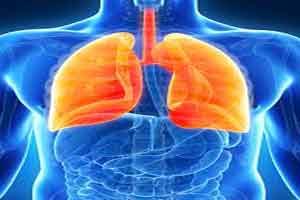- Home
- Editorial
- News
- Practice Guidelines
- Anesthesiology Guidelines
- Cancer Guidelines
- Cardiac Sciences Guidelines
- Critical Care Guidelines
- Dentistry Guidelines
- Dermatology Guidelines
- Diabetes and Endo Guidelines
- Diagnostics Guidelines
- ENT Guidelines
- Featured Practice Guidelines
- Gastroenterology Guidelines
- Geriatrics Guidelines
- Medicine Guidelines
- Nephrology Guidelines
- Neurosciences Guidelines
- Obs and Gynae Guidelines
- Ophthalmology Guidelines
- Orthopaedics Guidelines
- Paediatrics Guidelines
- Psychiatry Guidelines
- Pulmonology Guidelines
- Radiology Guidelines
- Surgery Guidelines
- Urology Guidelines
Novel test helps faster detection of pathogens in lungs

London : A new molecular-based method can detect mycobacterial pathogens, which cause tuberculosis, much more quickly than the culture-bases techniques that used to take several weeks, a study says.
Mycobacterium tuberculosis is the causative agent of tuberculosis a potentially serious infectious bacterial disease that mainly affects the lungs and was responsible for the death of nearly 1.5 million people worldwide in 2014.
The team studied more than 6,800 patient samples to examine molecular-based methods for the detection of mycobacterial pathogens.
The researchers developed a diagnostic algorithm to detect mycobacteria directly from the patient sample using genetic analysis.
As many mycobacteria grows at a very slow pace, the tests based on bacteria cultures were time consuming and took several weeks to complete.
The subsequent susceptibility test to determine the appropriate medicine also used to take one to two weeks.
The findings showed that using the molecular detection methods, most patients know after one or two days whether they have an infection with tuberculosis pathogens or with nontuberculous mycobacteria which can trigger pulmonary infections, lymph node infections and skin diseases in patients with compromised immune systems.
The new molecular-based methods were found to be just as accurate as the lengthy culture-based techniques.
In addition, the molecular analysis makes it possible for the first time to also detect the nontuberculous mycobacteria directly from the patient sample within just a few hours.
This means that suitable therapeutic measures can also be initiated much more quickly, the researchers said.
If the patient has a tuberculosis infection, a further molecular assay is carried out to test susceptibility to the main tuberculosis drugs "rifampicin" and "isoniazid".
"This also showed that the molecular-based method reliably predicts the culture-based resistance results. It is possible to obtain certainty much sooner of whether the therapy with standard medicines chosen is likely to be successful", said Peter Keller from University of Zurich in Switzerland.

Disclaimer: This site is primarily intended for healthcare professionals. Any content/information on this website does not replace the advice of medical and/or health professionals and should not be construed as medical/diagnostic advice/endorsement or prescription. Use of this site is subject to our terms of use, privacy policy, advertisement policy. © 2020 Minerva Medical Treatment Pvt Ltd